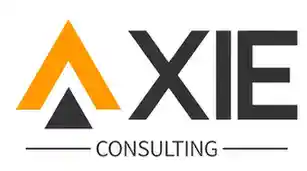
Tony Blair Institute AI Copyright Report Sparks Backlash
The Tony Blair Institute for Global Change (TBI) recently released a controversial report on AI and copyright, urging the UK to take a leading role in shaping policies around artificial intelligence and creative rights. Titled 'Navigating the Future: AI, Creativity, and Copyright,' the report has ignited fierce debate among artists, legal experts, and tech developers.
What the Report Proposes
The TBI's report argues that the UK has a unique opportunity to become a global leader in AI by modernizing copyright laws to accommodate machine learning. The institute suggests that current regulations are outdated and hinder innovation, proposing an 'opt-out' system where AI developers can use copyrighted material for training unless creators explicitly object.
According to the report, this approach would strike a balance between protecting intellectual property and fostering AI advancements. It also recommends establishing a government-funded Centre for AI and the Creative Industries to oversee policy implementation.
Why the Backlash?
Almost immediately after its release, the report faced criticism from multiple fronts. Creators, legal scholars, and even some AI ethicists argue that the proposals undermine artists' rights while favoring big tech companies.
1. Uncertainty Over Copyright Law?
The TBI claims that UK copyright law is 'unclear' regarding AI training—a statement that critics like Ed Newton-Rex, CEO of Fairly Trained, call misleading. Newton-Rex argues that existing laws already require licensing for commercial use of copyrighted works, making the opt-out system a step backward for creators.
2. Who Benefits?
Many artists and writers, including British novelist Jonathan Coe, point out that the report was authored solely by tech and policy experts—without input from actual creators. This has led to accusations that the TBI is prioritizing corporate interests over those of individual artists.
3. The Human vs. AI Learning Debate
One of the most contentious points is the report's comparison between AI training and human learning. Critics argue that equating the two is flawed because AI systems can process and replicate works at an unprecedented scale, far beyond human capability.
4. Funding Concerns
The proposal to fund the new AI centre through a levy on internet service providers (ISPs) has also drawn ire. Opponents say this would unfairly burden consumers rather than holding AI companies financially responsible.
The Bigger Picture: AI and Creative Industries
Beyond the immediate backlash, the TBI report raises important questions about the future of creativity in the AI era. Supporters argue that AI can enhance human creativity, while critics fear it could devalue original work and lead to job losses in creative fields.
As the debate continues, one thing is clear: the UK—and the world—needs a balanced approach that fosters innovation without sacrificing the rights of creators. Whether the TBI's recommendations are the right path forward remains hotly contested.
